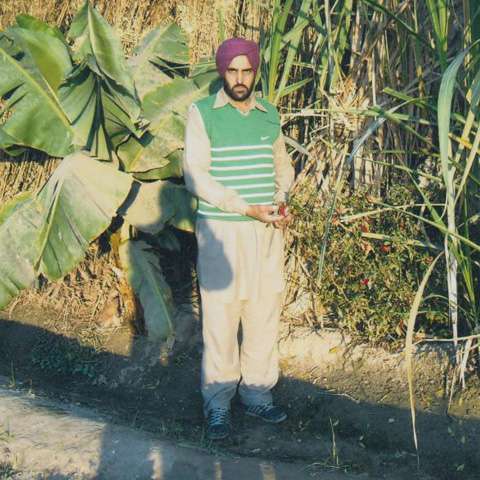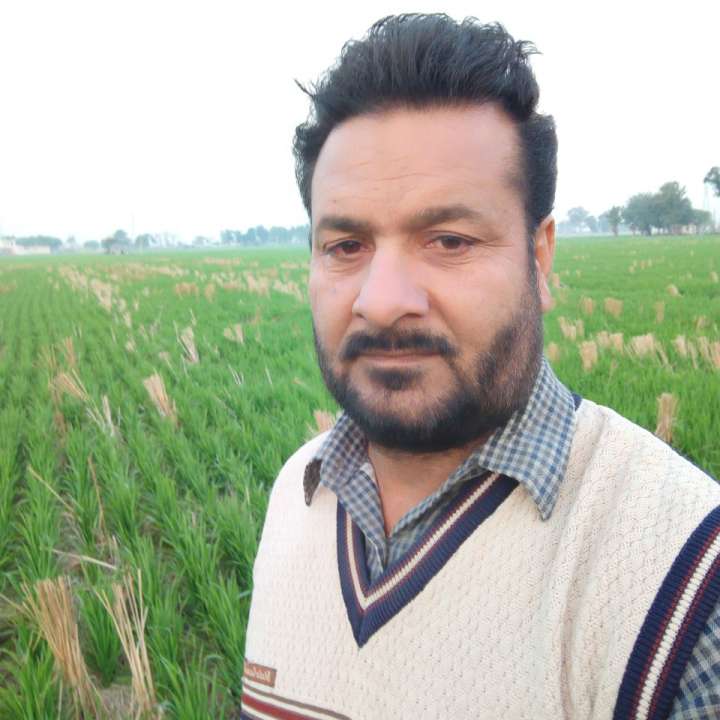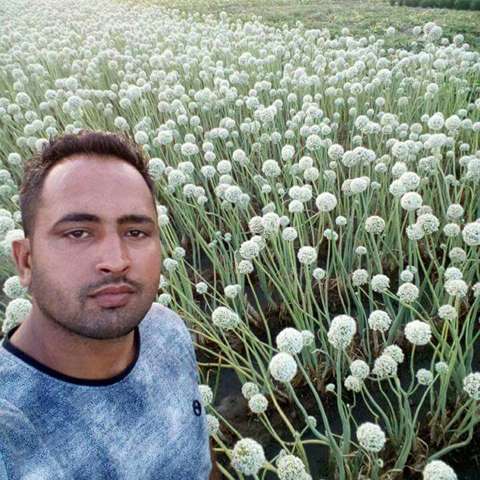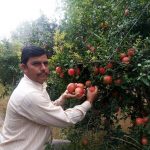Hope for the Better Present and Future, Turned Kulwinder Singh Nagra towards Sustainable Farming Practices
Hope is the only positive feeling which gives a person the strength to think about the future even not being sure about it. And when we know that we are thinking about the better future then our actions are accelerated automatically despite knowing some negative consequences. Same was the case with Kulwinder Singh Nagra, a progressive farmer from Nagra village of district Sangrur, for whom hope acted as the driving force to turn towards natural farming.
“Before venturing into natural farming I knew that I will face loss for consecutively two years, even after sensing this situation I decided to adopt natural practices. Because for me my family and surrounding are more important than earning money. Moreover, I am earning for my family and myself, what if, even after earning so much money I am not able to keep my family healthy… then everything is in vain.”
Coming from a farming background, Kulwinder Singh Nagra also decided to follow the same footsteps like his father. In 1997, after completing his matriculation, he started following the family old traditions of paddy and wheat cultivation. Till 2000, he continued wheat and paddy in 10 acres of his land and some vegetables like Peas, Onion, Garlic, and Bottle gourd in one acre. But somewhere in his heart, he was not satisfied with the mass production of wheat and paddy. So, gradually he started increasing the vegetable cultivation area from one acre to 7 acres and Kinnow and Guava in 1 ½ acres.
“Kinnow was less successful but Guava gave good returns and I continued it in the future also.”
Experiencing the success in horticulture, raised Kulwinder Singh Nagra’s confidence, and steadily he expanded his agriculture activities to generate more profit. From vegetable cultivation to nursery preparation he started doing everything. In 2008-2009 he started selling prepared nursery of Chilli, Onion, Pumpkin, Bitter Gourd, Bottle Gourd, Tomato, and Bel, outside Punjab in Shahabad Markanda, Sirsa, and in different Kisan Melas also.
In 2009, he thought of changing his farming practices into natural, so he took training of Kudrati Kheti from Pingalwara, where the basics of Zero Budget Natural Farming are taught to the farmers who want to make earth a better place. Keeping in mind a safe and stable start Kulwinder Singh Nagra started natural farming from 5 acres.
He was well-aware from the fact that converting pesticide and chemical treated land to organic will take a long time and he will earn no profit in the beginning. But he never stepped back from what he started. In between, he decided to upgrade his farming skill and he took training in different fields for food processing, hybrid seed production of chili and cucumber, net house cultivation of vegetables, and greenhouse management. Almost after two years, he started earning the minimal profit.
“Marketing was the main hurdle which I faced the most to sell my organic produce. As I was a newbie so it took me some time to understand the marketing strategies. In 2012, I adopted right marketing strategies and then it became easy for me to sell the vegetables.”
Another step that Kulwinder Singh Nagra took to avoid any harm to nature was that he stopped burning stubble. Today stubble burning is one of the major problems, which Punjab is encountering and on Global level also it is a big issue. Just to save the time, labour and money farmers in Punjab and Haryana are burning stubble, but Kulwinder Singh Nagra instead of burning the stubble, used it for the mulching method and the rest of the stubble for composting.
Kulwinder Singh Nagra always prefers modern environment-friendly technologies like happy seeder, cultivator, bed planter, plough, ripper, and rotavator, to move ahead in the field of agriculture flourishingly.
Currently, he is cultivating wheat on 3 acres, fodder crop on 2 acres, vegetables (Chilli, Capsicum, Cucumber, Ash Gourd, Watermelon, Bottle Gourd, Brinjal, Onion, and Garlic) on 6 acres and fruits like Peach, Amla (Gooseberry), and Kinnow in 1 acre. He uses drip irrigation to properly utilize the water at his farm.
To support his agricultural activities he is also doing dairy farming. He has 12 animals in his barn which include Murrah buffalo, Neeli Ravi, and Sahiwal. 90 to 100 kg is milk production per day, out of which he sold 70-75 kg milk in the market and uses the rest for home consumption. Now, marketing is not a big deal, he sells all the organic vegetables in the market of Sangrur, Sunam, and Samana. Merchants come to his farm themselves to buy the fruits. And in this way, he is earning the right price of his crop produce.
For all his accomplishments he gives credit to Punjab Agriculture University and his family. Today, he has become a person who inspires others with his natural vegetable farming skills; and he is proud of it. For his work in the field of natural farming of vegetables, he has received many awards and appreciation and some of them are…
• Received “Krishi Karman Award of Progressive Farmer” given by Hon. Prime Minister of India – Narendra Modi at Sooratgarh (Rajasthan) – 19th February 2015.
• Received Block Level Award under ATMA, given by Shri Kumar Rahul IAS Deputy Commissioner Sangrur.
• Received award from Punjab Agriculture University Ludhiana.
• Received award from Director of Agriculture, Punjab
• Achieved 1st and 2nd position many times in cultivating best vegetable variety
Well, these awards are just a few to mention, he is mainly recognized for his work for the farmer society. Farmer interactions, PAU and KVK Scientists visit at his farmhouse is organized often to provide a broad insight to the farmers to work successfully in the field of agriculture. He has also established Vermi compost plant, follows inter-cropping pattern, low tunnel technique, practice beekeeping, bed planting in wheat (in some areas) zero tillage of wheat by using No-till drill Happy Seeder, Laser Levelling before transplanting of paddy, mechanical transplanting, Integrated Pest Management and Integrated Nematode Management.
After the adaptation of different agriculture technologies, his wheat production increased creating the record of highest wheat production across the country which was 6456 kg per hectare in 2014 by following natural farming practices. And for this achievement he was awarded Krishi Karman award as mentioned above. Farmers living nearby him idolize him and consult him to adopt more environment-friendly technologies.
Future Plan:
In future Kulwinder Singh Nagra is planning to export vegetables to abroad.
“Farmers who chose the path of suicide to get relieved from the burden of loans and responsibilities, should stop doing this. God has given us numerous opportunities and abilities to achieve our life goals and we should never let these chance skip.”











